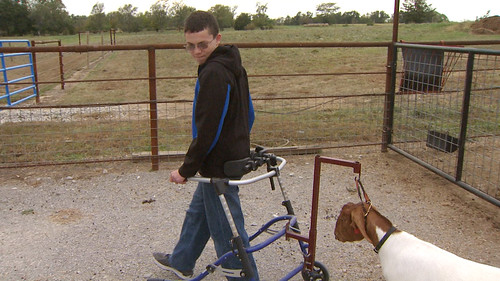
4-H is about more than barnyard animals, it’s about emerging sciences, like rocketry and geographic information systems. 4-H is also about leadership, citizenship, and many other things, but one quality truly stands out: 4-H is about inclusion.
In Missouri, 4-H clubs take an inclusive approach to working with youth who have special needs. “We don’t have set-aside or separate programs or activities for youth with special needs,” said Alison Copeland, campus 4-H specialist with University of Missouri Extension. “Rather, we provide our staff and volunteers with the tools and resources, such as sensitivity activities, to help staff increase their ability to work with youth of varying abilities in the same club or program.”
Some of those resources were adapted from The Ohio State University’s “Winning 4-H Plan,” with program assistance from 4-H National Headquarters at USDA’s National Institute of Food and Agriculture (NIFA).
“Our goal in 4-H is to help all youth reach their fullest potential,” said Dr. Amy McCune, national program leader with NIFA’s Division of Youth and 4-H. “We believe that a collaborative and inclusive environment where youth and adults learn from each other creates positive change within both themselves and in the community.”
4-H staff, volunteers, and parents understand how to help youth with special needs have meaningful experiences in 4-H activities, including participation in competitive events at county fairs, exhibits, camps, and more. “We encourage youth with special needs to fully participate in 4-H programs,” Copeland said. Examples of special needs youth in Missouri 4-H are featured in the YouTube video “4-H and Youth with Special Needs.”
“Many youth with special needs go to 4-H camps, participate in 4-H projects and fairs, and travel to leadership and educational conferences – alongside their differently-abled 4-H peers,” Copeland said. “Inclusion is the key word.”
Copeland said that 4-H is a supportive and inclusive environment for youth with special needs, where staff and volunteers are sensitive to the needs of all youth and help create positive learning environments. “This tone sets the stage for youth to be inclusive and accepting with one another, as well,” she said. “We will continue looking at all aspects of the 4-H program to integrate accommodations and adaptations.”
NIFA invests in and advances innovative and transformative research, education and extension to solve societal challenges and ensure the long-term viability of agriculture.
